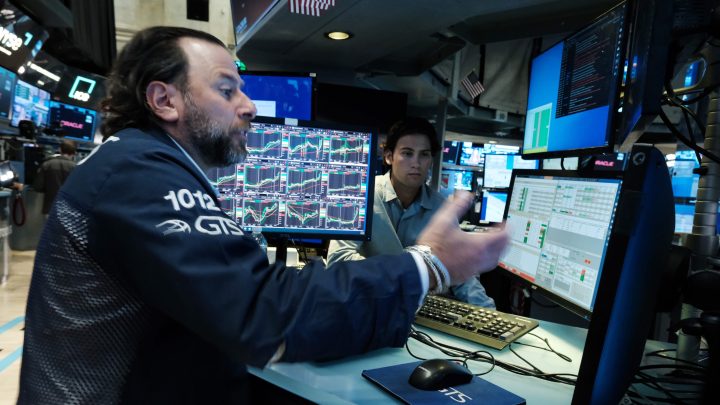
Are stocks just not gonna do as well anymore?

Across the field of economics, some experts wonder if we are entering a new era when it comes to the stock market. After 30 years of high performance, the market may not be so high performing anymore. Call it the economic doldrums hypothesis.
From 1989 to 2019, the United States economy — real GDP — grew about 2.5% per year. But the market, represented by the S&P 500 index, for example, rose at more than twice that rate. According to some economists, that can’t go on.
“You’re starting to reach what you could call burnout,” said Sameer Samana, senior global market strategist for the Wells Fargo Investment Institute. In a recent paper, a Federal Reserve economist outlined this argument and said that much of the exuberant growth in the market has been the result of two things: lower interest rates and lower taxes.
Those two things were responsible for 40% of the growth in real corporate profits from 1989 to 2019, according to the Fed economist, Michael Smolyansky. He and other economists, including Samana, say those two things are going away.
“With respect to taxes,” Samana said, “I think now because of what you’ve seen from a fiscal spending standpoint, and because a lot of places have aging populations, you’re gonna need to fund government spending in some way.”
As for interest rates — they can’t really get any lower than they were before the pandemic, and now that the menace of inflation has returned, they’re very unlikely to get that low again anytime soon.
Economists at BlackRock Investment Institute have come to a similar conclusion.
“The 40-year period prior to 2020 was exceptional,” said Jean Boivin, head of the BlackRock Investment Institute. He calls that period the great moderation.
“That environment was stable in large part because of some kind of luck,” he said. “Where the production capacity of the world was increasing at a steady pace every year, creating room for the global economy to grow without necessarily creating inflation.”
Now, Boivin said, the world is facing production constraints, rewiring of global supply chains, and higher energy costs, all of which can weigh on profitability and drive inflation. That inflation would require central banks to keep interest rates on the higher side — in contrast to the decades before the pandemic.
There are caveats to the idea that we are entering a world of lower stock returns. Eugenio Alemán, chief economist at Raymond James, agrees with the general idea. But, he said, “I think the argument that returns are going to be very, very low would apply to very mature industries, very mature firms, but they do not apply to top-of-the-line or on-the-edge, let’s say, firms.”
By top of the line, Alemán means innovative firms pushing the technological envelope — those in artificial intelligence, for example. That thought is echoed by Richard Sylla, an economic historian and professor emeritus of economics at New York University’s Stern School, who said that while the theory is worth thinking about, “the prediction could be wrong because we can’t predict the technological future.”
Netflix, Google, Amazon — none of those existed in 1989. Who knows what’s coming next to fuel both the economy and the stock market? On the other hand, Sylla said, history does suggest these past few decades were special.
“The U.S. stock market goes up and down in regular cycles, magnifying what’s going on in the economy,” he said. In the best decades, Sylla calculated, market returns reached 17% to 18% annually. In the worst, returns were zero or minus-1%. “And right now, we’re up close to the top.”
If we are in fact headed for a long period of lower market returns, it means an entire generation of investors is headed for disappointment.
“I think this new regime requires a new playbook,” said BlackRock’s Boivin. For years, he said, the conventional investment wisdom was to put money into index funds and bonds and let the markets do the work. “Going forward, this simple approach will not take you as far,” he said.
He said investors will need to focus on trends and drivers affecting particular industries, looking for changes in the economic landscape, whether artificial intelligence or climate change. In many ways, the world has already changed. The question is, how will markets change with it?
There’s a lot happening in the world. Through it all, Marketplace is here for you.
You rely on Marketplace to break down the world’s events and tell you how it affects you in a fact-based, approachable way. We rely on your financial support to keep making that possible.
Your donation today powers the independent journalism that you rely on. For just $5/month, you can help sustain Marketplace so we can keep reporting on the things that matter to you.











